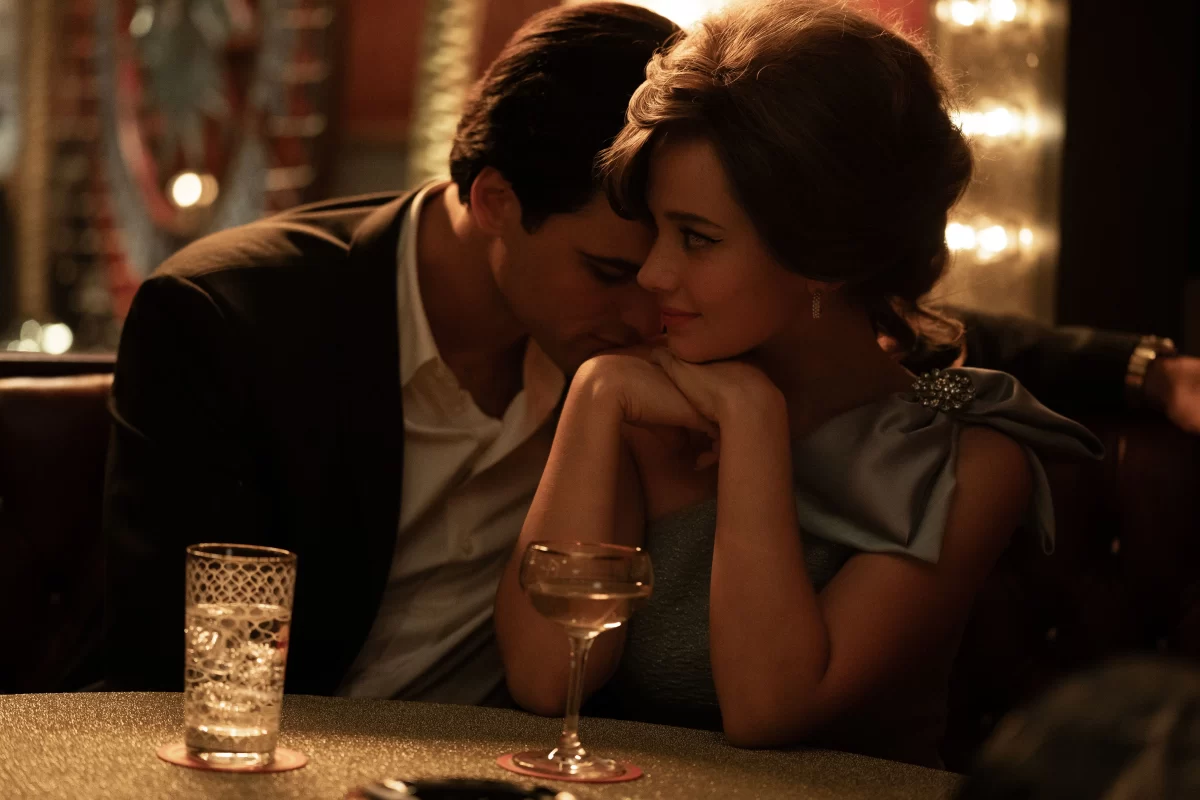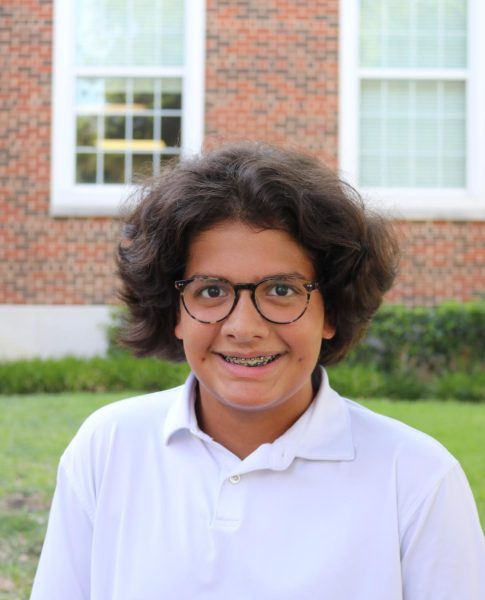A slow story, muted color scheme and tear jerking moments are a sharp contrast from previous depictions of the famous Presley couple, yet the A24 film “Priscilla” executes it well.
On Nov. 3, A24’s take on the love story of Priscilla and Elvis Presley, “Priscilla” hit theaters.
The film stars Cailee Spaeny as Priscilla and “Euphoria” actor Jacob Elordi as Elvis. “Priscilla” was directed by Sofia Coppola, best known for her 1999 film “The Virgin Suicides.”
Unlike traditional Elvis movies that focus on Elvis Presley’s rise to fame, Priscilla serves as a biopic of Priscilla Presley’s struggles during her time with “The King of Rock and Roll,” addressing key aspects of the dichotomy in their relationship often overlooked by fans.
Elvis and Priscilla met in 1959 when she attended a party at his home in Bad Nauheim, Germany. Priscilla was only 14-years-old at the time.
Coppola starts the film around this time, with naive Priscilla sitting in a diner, where a young soldier asks her if she “likes Elvis.” With permission from her father, Priscilla attends one of Elvis’ parties, where the two have their first encounter. His charisma drew her in, kickstarting their 13-year-long relationship.
Off the bat, we get to see this more exploitative side of Elvis, using words like “good girl” and emphasizing the importance of her “purity.” Coppola portrays a version of their romance tainted by Elvis’s predatory and grooming behavior leaving the viewer feeling uneasy.
The deliberate choice to cast Spaeny and Elordi with a 14-inch height difference furthers underlying themes of child grooming, by depicting their first encounters as a full-grown man making advances at a young girl.
The use of clothing and hair to showcase the main character’s development throughout the movie was intriguing, and the subtle choice really added to the depth of the film. Upon their first meeting, Priscilla was always dressed in modest clothing, with her chest and knees covered, a gold heart locket around her neck, and a traditional 1950s ponytail. She was dressed like the 14-year-old child that she truly was.
When she arrived at Graceland and fell deep into Elvis’s control, the modest dresses were replaced with the clothing Elvis preferred and her familiar ponytail was reworked into a jet black up-do, held up with gallons of hairspray. As the movie progressed, I watched Priscilla fall at the foot of Elvis’s every wish as the last strands of innocence were stripped away from her.
Towards the end of the film, Priscilla reverts to her light brown hair and clothing styles her husband would not approve of. The change and growth of her character is beautifully represented through her transformation from Elvis’s Barbie doll back to her true self.
Coppola does a fantastic job of shedding light on the toxic patterns in abusive relationships. We see Elvis showering his wife with love and lavish gifts to keep her oblivious to the luxurious prison she is kept in. As soon as she becomes restless in their relationship, Elvis scares her back into submission through his screaming fits and violent tendencies. Priscilla may notice the abuse, but while trying to leave she is met with the same “puppy love” that drew her in initially. And so, the cycle continues.
Compared to “Elvis,” the 2022 film directed by Baz Luhrmann, Coppola’s “Priscilla” did a much better job addressing the true struggles in their relationship, which Luhrmann’s film painted over. Although “Priscilla” shared more of the true story, Luhrmann’s “Elvis” was more engaging and kept me on the edge of my seat during the entire experience, while at times “Priscilla” almost put me to sleep.
The acting in both movies was also magnificent, but compared to Austin’s Butler’s portrayal of Elvis, Elordi’s felt lacking, like he did not truly embrace the character of Elvis. He perfected the voice inflection and swagger to a tee, but at the end of the day, I just couldn’t separate Elordi from his previous character as Nate Jacobs in “Euphoria.”
Coppola stuck to the cohesive aesthetic of her previous films, portraying Graceland much differently than Luhrmann did a year prior. Luhrmann’s version of the story was full of bright purples, reds, and gold, focusing on the excitement around Elvis’s success at the time. On the other hand, Coppola depicted the story in a sea of browns, baby blues, pinks, and yellows, giving the film undertones of “childhood innocence.” The set radiates old Hollywood glamor, yet the dark muted filters applied to the clips showcase the sinister truths within Elvis and Priscilla’s relationship.
While a majority of the movie felt slow, the last 20 minutes became hard to follow,
as the time jumps became larger and larger. By the end, the plot abruptly cuts off as the movie closes.
Ultimately after making it through the entire movie, I was still left wanting more. While Coppola aced the set, style, and acting, the movie felt slow and dragged on without the excitement, passion, and craziness I anticipated. Keep in mind this movie isn’t even 2 hours long.
Additionally, considering the movie was marketed as a biopic of Priscilla’s life, the film only seemed to revolve around her relationship with Elvis and not focus on Priscilla as a person. I wanted to see more of her internal dialogue, and what went through her head during this time in her life. The movie lacked depth within Priscilla’s story, I wanted to see more of her life outside of Elvis.
I personally would not choose to see “Priscilla” again, but if you want to better understand the darker truths behind Elvis’ story, or are just a diehard Jacob Elordi fan, it’s definitely worth the watch.




